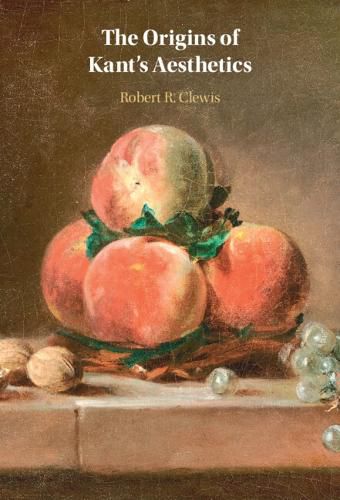Readings Newsletter
Become a Readings Member to make your shopping experience even easier.
Sign in or sign up for free!
You’re not far away from qualifying for FREE standard shipping within Australia
You’ve qualified for FREE standard shipping within Australia
The cart is loading…






Organized around eight themes central to aesthetic theory today, this book examines the sources and development of Kant’s aesthetics by mining his publications, correspondence, handwritten notes, and university lectures. Each chapter explores one of eight themes: aesthetic judgment and normativity, formal beauty, partly conceptual beauty, artistic creativity or genius, the fine arts, the sublime, ugliness and disgust, and humor. Robert R. Clewis considers how Kant’s thought was shaped by authors such as Christian Wolff, Alexander Baumgarten, Georg Meier, Moses Mendelssohn, Johann Sulzer, Johann Herder, Francis Hutcheson, David Hume, Edmund Burke, Henry Home, Charles Batteux, Jean-Jacques Rousseau, and Voltaire. His resulting study uncovers and illuminates the complex development of Kant’s aesthetic theory and will be useful to advanced students and scholars in fields across the humanities and studies of the arts.
$9.00 standard shipping within Australia
FREE standard shipping within Australia for orders over $100.00
Express & International shipping calculated at checkout
Organized around eight themes central to aesthetic theory today, this book examines the sources and development of Kant’s aesthetics by mining his publications, correspondence, handwritten notes, and university lectures. Each chapter explores one of eight themes: aesthetic judgment and normativity, formal beauty, partly conceptual beauty, artistic creativity or genius, the fine arts, the sublime, ugliness and disgust, and humor. Robert R. Clewis considers how Kant’s thought was shaped by authors such as Christian Wolff, Alexander Baumgarten, Georg Meier, Moses Mendelssohn, Johann Sulzer, Johann Herder, Francis Hutcheson, David Hume, Edmund Burke, Henry Home, Charles Batteux, Jean-Jacques Rousseau, and Voltaire. His resulting study uncovers and illuminates the complex development of Kant’s aesthetic theory and will be useful to advanced students and scholars in fields across the humanities and studies of the arts.